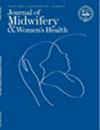Person-Centered Perinatal Health Care and Empowerment During Pregnancy, Birth, and Postpartum: A Cross-Sectional Mixed-Methods Analysis
Abstract
Introduction
In the United States, Black birthing people report poor-quality health care and face adverse maternal and infant outcomes. Empowerment to advocate with health care providers could help improve outcomes for birthing people of color. The literature is, however, sparse on factors associated with empowerment in the perinatal period. We examined the association between person-centered care and feeling empowered to advocate with health care providers across the perinatal period.
Methods
Data are from 265 postpartum birthing persons who completed an online survey in 2020. The survey included validated scales for Person-Centered Prenatal Care (PCPC) and Person-Centered Maternity (labor and birth) Care (PCMC), feelings of empowerment to advocate with health care providers, and an open-response question regarding empowerment. Multivariable logistic regression models and qualitative thematic analysis were conducted.
Results
A majority of the sample was Black, married, had one child, had college degrees, had private insurance, and gave birth in a hospital with midwives. Overall, about 75% of the sample felt empowered to advocate with health care providers during prenatal care, birth, and postpartum. On average, participants scored 84 of 100 on the standardized PCPC scale and 90 of 100 on the standardized PCMC scale. Each one-point increase in PCPC score was associated with 11% higher odds of feeling empowered during prenatal care. Each one-point increase in PCMC score was associated with 8% higher odds of feeling empowered during both birth and postpartum. Respect and dignity drove the association between PCPC and empowerment during prenatal care, whereas communication and autonomy drove the association between PCMC and empowerment. Qualitative responses emphasized the importance of communication and respect from health care providers, autonomy, and social support from partners and doulas on empowerment.
Discussion
Person-centered perinatal health care is associated with feeling empowered to advocate with health care providers during prenatal care, birth, and postpartum. Effective communication and autonomy are vital for fostering patient empowerment.

 求助内容:
求助内容: 应助结果提醒方式:
应助结果提醒方式:


